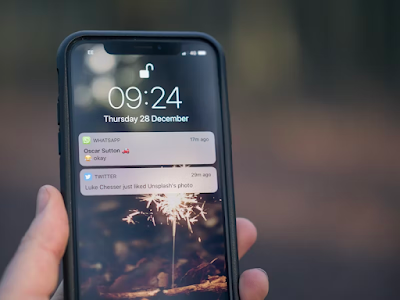Shorter Talks, Better Results: Rethinking Consultation Efficiency
One of the most useful skills, in any industry and any line of job, is the ability to think on the spot. Some people can, right after listening to comments from others or even skimming through some dense text, immediately provide their feedback and critique. If the comments are relevant, insightful, and sharp-witted, they leave lasting impressions of being quick to think and capable of real-time communication. Having more meetings, like I do for my job, can be a good way to train the mind to react to information and reply more quickly.
Easier said than done, unfortunately. Those who seem to react quicker may not be quick-witted but just better-practiced. Years of experience handling similar kinds of information provide them with a fundamental edge in providing relevant reactions. They know what to look at and listen for when they see information because the information might just come in as set patterns, all of which they have seen too many times. And the reactions they provide may just be based on their years of providing similar feedback as well, even if the feedback sounds brand-new to brand-new clients.But even for the better-practiced, reacting to brand-new information on the spot is not easy. College application essays, written by students for the sake of displaying their uniqueness, are one such example. Almost by definition, their merit comes from the ability to stand out. With that definition in mind, the reaction to seeing them ought to go beyond the standard listing up of what is cliched, and as such, advisable to revise significantly or rewrite completely. Thinking of brand-new angles, unique to a particular individual and rarely used in the past, is difficult even for the most experienced.
Add to the pressure of being unique is the pressure of deadlines. In the most casual of conversations, a silence that lasts more than a few seconds can feel uncomfortable. For consultants, educational and otherwise, prolonged silence before ideas flow can almost seem unprofessional. After all, consulting's main output is the communication of ideas that can then be implemented by the clients. If plenty of ideas are not forthcoming, then it begs the question of why the consultant is being paid in the first place. The pressure of that five-second "deadline" forces the consultant to speak up, even when ideas are mediocre.And that pressure only gets greater when combined with another deadline, for the submission of those supposedly unique college essays. Just as anyone would procrastinate until the inevitable deadline, high school students work on their essays at the last minute, trying to get their paid consultants to help them come up with something perfect right before the deadline. Unfortunately, creativity cannot be rushed, especially when the students themselves are trying to rush through without fully explaining to the consultants what they are thinking when they write.
The need to communicate fully and quickly while being pressurized by the deadline of now and the near future...what would make such communications work better then? I do not have definitive answers, especially considering that each student is in a different situation and can have a different communication style. Either way, more frequent communication, with quick replies to quick questions, can do much to resolve concerns. Those questions are better answered through a series of small meetings or text messages, rather than infrequent hour-long meetings. No one can list up all their questions in one setting.
In the need for more frequent communication, the value of the consultant may be less that they are precise and quick with their responses, but simply that they are more available. Clients may end up favorably rating the performance of their paid consultants when the consultants are ready to be consulted at any time, even if not every consultation session is of the same quality. With more frequency, the average quality of the consultant's phases of work can go up even when the quality is up and down across multiple sessions. This "good by average" rule mitigates the fear of being pressured by deadlines to be mediocre.Such focus on frequent communication can be especially helpful for the purpose of educational consulting. Shorter 30-minute check-ins can beat 1-hour full-on meetings, when there is not too much to discuss, and high school students, like their jaded middle-aged mentors, start zoning out after the first half of the meeting. Better yet, if some work can be done through the exchange of messages that can be quickly responded to, why bother with setting aside meeting time when multitasking is not possible? A new way of communication could make consultants and their clients less pressurized and more efficient.





Comments
Post a Comment